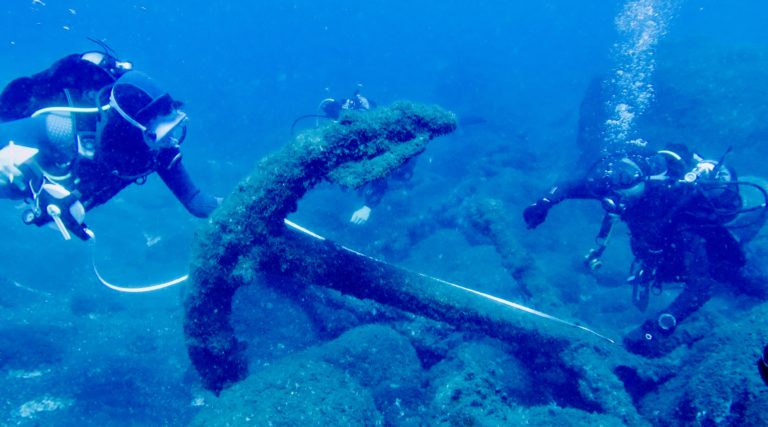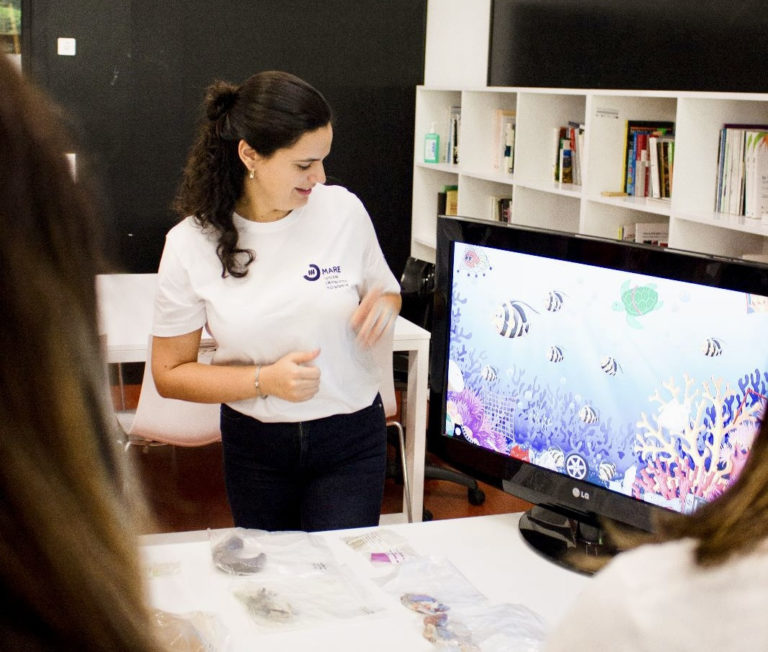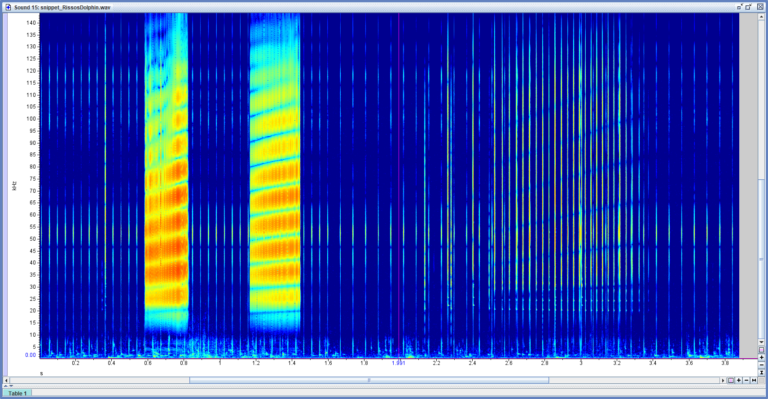Choose Rugby, Not Plastic
On a survey trip around Madeira, our MARE-Madeira researchers found a pod of dolphins playing with plastic. Catching it with their tails (as shown in the video), the dolphins were passing this plastic between each other like a toy. And when we tried to intercept one of those ‘passes’, the dolphins wouldn’t let us.
Which, frankly, is pretty ungrateful. As humans, we invented this game. We made and passed the plastic first! But now, as the dolphins made clear, we’re too slow to keep up. Regaining possession of these plastics will require a big step-up in our skillset. To be the champions of this game once more, it’ll take hard work. It’ll take financial investment. It’ll probably take fancy equipment. But if England’s rugby team didn’t give up in 1871, neither should we! *
Around 14 million tonnes of plastic ends up in the ocean each year. While a lot of media attention has been given to microplastics, of equal threat to marine life are macroplastics. Macroplastics — including plastic bags, bottles and nets — can become entangled around and be ingested by larger and keystone marine species. When wrapped around these animals or eaten, these plastics can cause bodily harm and death.

While dolphins playing with plastic may look cute, it’s the visual sign of an invisible, worsening tragedy. For the next player in this game of ‘pass the plastic’ may be a whale’s stomach. One plastic bag or bottle too many and then, as seen in Thailand in 2018 and being increasingly recorded in marine animal post-mortems around the world [1, 2, 3], it’s game-over.
Deep-diving whales are particularly vulnerable to macroplastics. It’s not clear why these whales eat so much plastic, but our hunch is that the way these animals hunt for food may be confusing prey with plastic.

Similar to bats, some whales use echolocation to hunt for their food. In the deep, dark ocean, sperm whales emit clicking sounds that travel through the water and bounce off prey like squid. The sound waves that travel back to the whale signal that food is in reach — and the chase begins.
At MARE-Madeira, we’re currently investigating whether sound waves that bounce off plastic sheets and bags are similar to the ones that bounce off deep-sea squid. The results of this research could help us understand why deep-diving whales (including endangered species like sperm whales) are eating so much plastic.
If you’d like to learn more about the research at MARE-Madeira that is helping to inform whale conservation efforts, read our publications here or reach out to our Megafauna team.
In the meantime, please choose rugby, not plastic. Even in Portugal, we are much, much better at retrieving rugby balls than we are plastic from the ocean. And if all it takes is one plastic bag or bottle to harm a marine animal, then every bag and bottle you don’t pass on counts. Thank you for helping protect our ocean’s amazing critters!

*For non-rugby buffs: England invented the game of rugby in the mid-18th century. They lost their first international match (against Scotland) in 1871, but they’ve gone on to win three world cups, 29 Six Nations tournaments (including 14 Grand Slams), and a variety of other things that is beyond this scientist’s comprehension.
Media credits: Dolphins playing with plastic by Ana Dinis. Pod of dolphins by Filipe Alves. Cranchiid squid juvenile by Uwe Kiss (Wikipedia Commons). Sperm whales around Madeira by Massimiliano Rosso.
[1] Alexiadou, P., Foskolos I. and Frantzis, A. (2019). Ingestion of macroplastics by odontocetes of the Greek Seas, Eastern Mediterranean: Often deadly! Marine Pollution Bulletin, 146, 67-75. https://doi.org/10.1016/j.marpolbul.2019.05.055
[2] Roman, L., Schuyler, Q., Wilcox, C. and Hardesty, B.D. (2021). Plastic pollution is killing marine megafauna, how do we prioritize policy to reduce mortality? Conservation Letters, 14:e12781. https://doi.org/10.1111/conl.12781
[3] Jacobsen, J.K., Massey, L. and Gulland, F. (2010). Fatal ingestion of floating net debris by two sperm whales (Physeter macrocephalus). Marine Pollution Bulletin, 60(5), 765-767. https://doi.org/10.1016/j.marpolbul.2010.03.008



